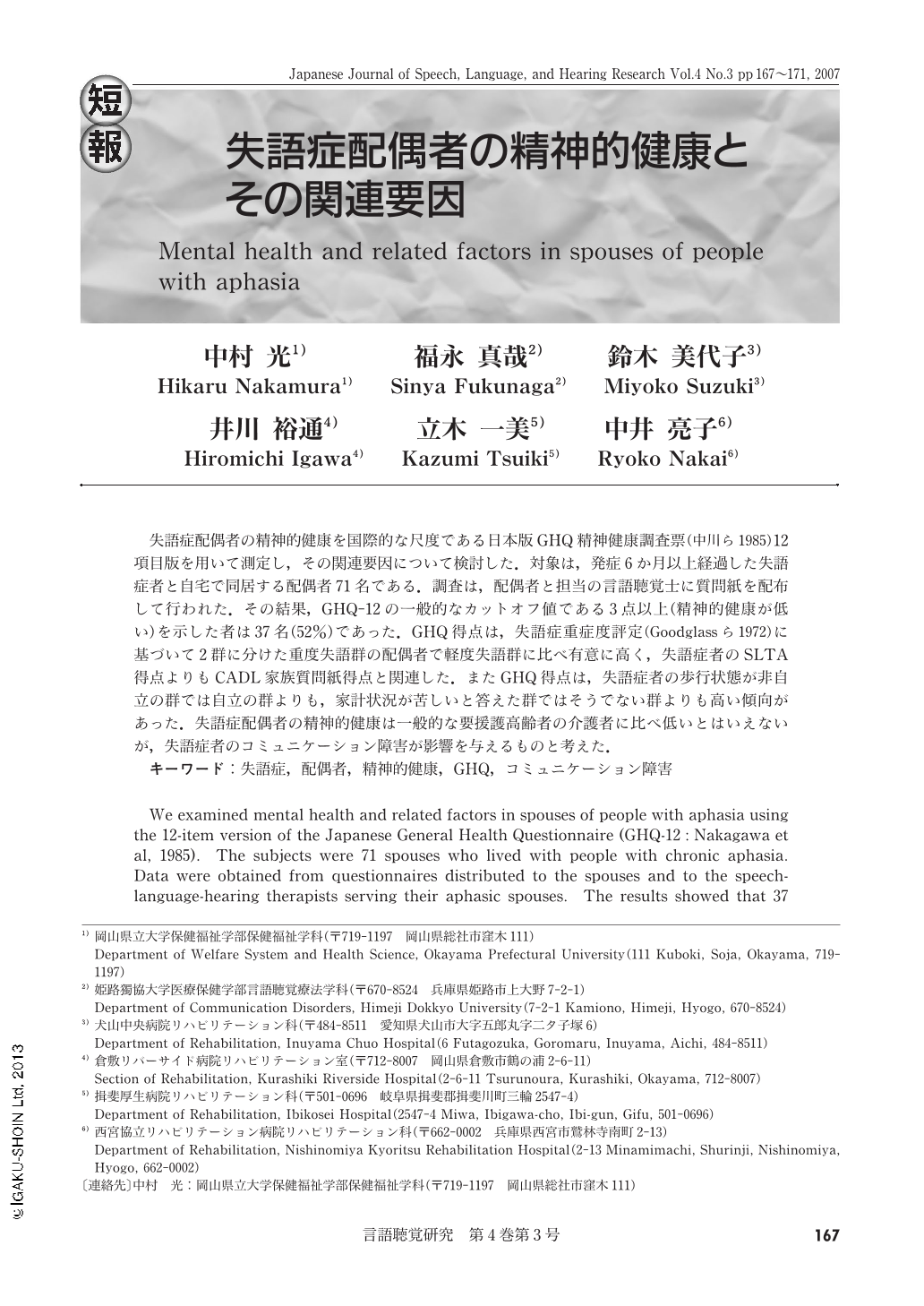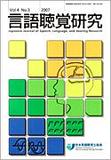Japanese
English
- 有料閲覧
- Abstract 文献概要
- 1ページ目 Look Inside
- 参考文献 Reference
失語症配偶者の精神的健康を国際的な尺度である日本版GHQ精神健康調査票(中川ら1985)12項目版を用いて測定し,その関連要因について検討した.対象は,発症6か月以上経過した失語症者と自宅で同居する配偶者71名である.調査は,配偶者と担当の言語聴覚士に質問紙を配布して行われた.その結果,GHQ-12の一般的なカットオフ値である3点以上(精神的健康が低い)を示した者は37名(52%)であった.GHQ得点は,失語症重症度評定(Goodglassら1972)に基づいて2群に分けた重度失語群の配偶者で軽度失語群に比べ有意に高く,失語症者のSLTA得点よりもCADL家族質問紙得点と関連した.またGHQ得点は,失語症者の歩行状態が非自立の群では自立の群よりも,家計状況が苦しいと答えた群ではそうでない群よりも高い傾向があった.失語症配偶者の精神的健康は一般的な要援護高齢者の介護者に比べ低いとはいえないが,失語症者のコミュニケーション障害が影響を与えるものと考えた.
We examined mental health and related factors in spouses of people with aphasia using the 12-item version of the Japanese General Health Questionnaire (GHQ-12:Nakagawa et al, 1985). The subjects were 71 spouses who lived with people with chronic aphasia. Data were obtained from questionnaires distributed to the spouses and to the speech-language-hearing therapists serving their aphasic spouses. The results showed that 37 (52%) of the spouses scored 3 or more points (corresponding to a lower level of mental health) on the GHQ-12. The severity of aphasia was determined using the Aphasia Severity Rating Scale (Goodglass et al, 1972). Spouses who lived with severely aphasic people scored significantly higher on the GHQ-12 than those who lived with mildly aphasic people. A multiple regression analysis using a stepwise method demonstrated that the GHQ-12 scores were related to the scores obtained on the Family Questionnaire in the Communicative Activities of Daily Living, but not to the scores obtained on the Standard Language Test of Aphasia. The GHQ-12 scores tended to be significantly higher for those spouses whose partners could not walk independently than for those whose partners could. Also, the scores of the spouses who reported financial difficulties tended to be significantly higher than those who did not report such difficulties. We concluded that communication problems associated with people with aphasia did seem to affect their spouses' mental health, although their mental health was not found to be significantly poorer than that of caregivers of elderly family members who need assistive care.

Copyright © 2007, Japanese Association of Speech-Language-Hearing Therapists. All rights reserved.


